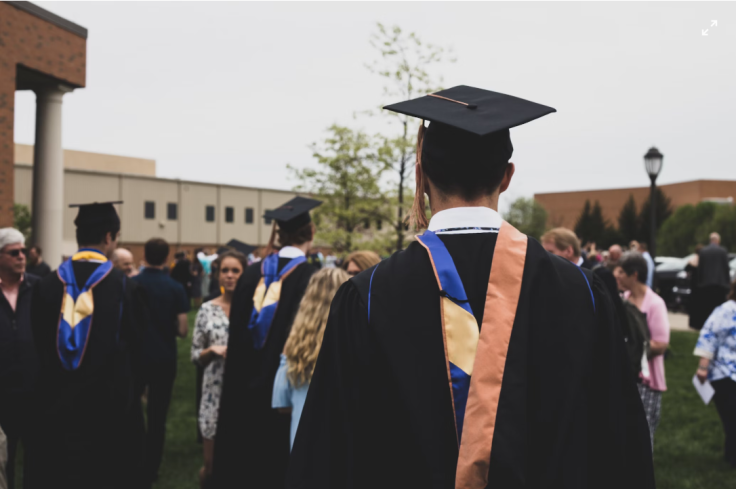In a recent ceremony at the Stateville Correctional Center in Crest Hill, Illinois, 16 men from Northwestern University's Prison Education Program (NPEP) achieved a historic milestone as the inaugural class of incarcerated students to earn bachelor's degrees from a top 10 university.

A Journey of Triumph Over Adversity
The commencement served as a poignant celebration of resilience and triumph over adversity. Michael Broadway, one of the graduates, shared a heartfelt address acknowledging his past and expressing gratitude to his family. Broadway, incarcerated for almost two decades and a survivor of stage four prostate cancer, encapsulated the transformative power of education within the prison system.
In his emotional speech, Broadway extended a heartfelt apology to his mother and family, recognizing the impact of his past actions. His words resonated with the audience, underlining not only personal growth but also the broader theme of redemption. Post-ceremony, Broadway struggled to articulate his feelings, describing the experience as indescribable.
READ ALSO: UN Flags Opportunity To Transform French Educational Inequality Into Catalyst For Progress
Michael Broadway's Inspiring Story
For Broadway's mother, Elizabeth, the ceremony marked a long-awaited reunion after nearly two decades. Overwhelmed with pride, she expressed shock at her son's accomplishment, stating, "I'm just so proud of him." Broadway's scheduled release is in 2084, yet his aspirations extend beyond confinement, envisioning a nonprofit focused on youth empowerment -- a testament to the potential for positive societal impact post-incarceration.
Broadway's resilience and commitment to making a positive impact post-release highlight the transformative potential of education within the prison system. His story reflects not only personal triumphs but also the collective potential for change and rehabilitation through education.
Northwestern's Commitment to Transformation
Since 2018, Northwestern University has collaborated with Oakton College and the Illinois Department of Corrections to provide accredited courses to incarcerated individuals through NPEP. Professor Jennifer Lackey, the program's founding director, highlighted the initiative's profound impact. The program fosters community and growth, bringing together individuals who, two decades ago, may have been on opposing sides of gang conflicts.
NPEP currently enrolls around 100 students across Stateville Correctional Center and Logan Correctional Center, a women's prison in Illinois. This inclusive approach extends educational opportunities to incarcerated individuals, transcending societal expectations and providing a chance for redemption.
David Soto, another graduate from the program, sees his degree as a stepping stone, planning to pursue law school. Soto hopes the inaugural class of incarcerated students will inspire others to showcase their potential and contribute positively to society. The success of Northwestern's Prison Education Program extends beyond academic achievements, challenging societal perceptions about the impact of education within the prison system.
Transformative Power Beyond Academic Achievements
Graduates, once on opposing sides of gang conflicts, now stand united in their pursuit of knowledge and transformation. As this pioneering class paves the way for others, their stories illuminate not only personal triumphs but also the collective potential for change and rehabilitation through education.
Northwestern's commitment to providing opportunities for incarcerated individuals exemplifies the profound impact education can have on lives, fostering hope and redemption where it was once thought impossible. The NPEP graduation ceremony at Stateville Correctional Center stands as a testament to the transformative power of education, offering a glimpse into the potential for positive change within the incarcerated community.
The NPEP graduates from Northwestern University have shattered barriers, proving that education has the transformative power to break the cycle of incarceration. Their stories underscore the importance of providing educational opportunities within the prison system, offering a pathway to redemption, personal growth, and societal contribution. As these graduates embark on a new chapter, they leave behind a legacy of hope, resilience, and the belief that education can truly change lives, regardless of the circumstances.
RELATED ARTICLE: Colorado Children To Worry Less About Future Education Thanks To CollegeInvest First Step Program
© 2025 University Herald, All rights reserved. Do not reproduce without permission.








